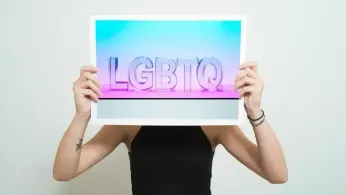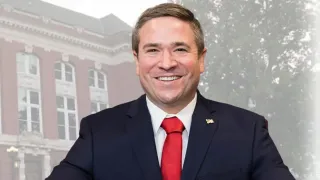
4 hours ago
Centrist Think Tank Urges Democrats to Drop LGBTQ+ and Minority Terms to Win Voters
READ TIME: 3 MIN.
The centrist Democratic think tank Third Way has released a high-profile memo urging Democratic leaders to avoid using a wide range of words and phrases related to LGBTQ+ rights and racial minority communities in public communications. The memo, titled “Was It Something I Said?”, lists more than 40 terms—including “LGBTQIA+,” “BIPOC,” “cisgender,” “birthing person,” and “Latinx”—that Third Way claims are “wildly out-of-touch social positions” and risk “erecting a wall” between Democrats and everyday voters.
The memo, which has been widely circulated among Democratic strategists and elected officials, argues that the party’s embrace of “elite language” and “political correctness” has contributed to electoral losses and alienation from swing voters. Third Way’s executive vice president of public affairs, Matt Bennett, stated, “We are doing our best to get Democrats to talk like normal people and stop talking like they’re leading a seminar at Antioch”. The report sorts the suggested taboo phrases into six categories: “Therapy-Speak,” “Seminar Room Language,” “Organizer Jargon,” “Gender/Orientation Correctness,” “The Shifting Language of Racial Constructs,” and “Explaining Away Crime”.
Among the words Third Way advises against are neutral descriptors and terms widely used within LGBTQ+ and racial justice advocacy, such as “LGBTQIA+,” “cisgender,” “deadnaming,” “intersectionality,” “Latinx,” “BIPOC,” and “birthing person.” The memo claims that these words represent “organizer jargon” or “gender/orientation correctness” that voters rarely use and can perceive as condescending or confusing. According to Third Way, “To please the few, we have alienated the many,” and the memo urges Democrats to “just talk like a normal person, for chrissakes”.
The think tank’s recommendations are based on analysis from focus groups and polling, which reportedly found that voters rarely use these terms and sometimes react negatively when they encounter them in political messaging. The memo asserts that using such language “puts up a wall between us and everyday people of all races, religions, and ethnicities.”
The memo’s recommendations have generated significant concern among LGBTQ+ advocacy groups and civil rights organizations, who argue that erasing neutral and identity-affirming language from political discourse undermines visibility, inclusion, and the fight against discrimination. Many LGBTQ+ advocates emphasize that terms like “LGBTQIA+” and “cisgender” help create spaces where people feel seen and respected, while also educating the public about diverse identities and experiences.
According to public statements by advocacy leaders, the suggestion to avoid words like “LGBTQIA+” and “BIPOC” risks sending a message that marginalized communities are not a priority for the party. “Inclusive language is not just political correctness—it’s a recognition of people’s lived realities,” said one spokesperson for a national LGBTQ+ rights organization.
Some Democratic elected officials have also expressed reservations about Third Way’s recommendations, noting that political messaging must balance accessibility with the need to stand up for civil rights and social progress. Others worry that the memo could be interpreted as a retreat from Democratic commitments to equity and justice.
The debate over Third Way’s memo comes as Democrats face ongoing challenges in winning back swing voters and responding to criticism from both right-wing opponents and progressive activists. The party is currently engaged in a period of soul-searching following losses at the presidential and congressional levels, with strategists exploring new ways to connect with voters across diverse communities.
While Third Way insists that its recommendations are not meant to police language or censor identity, but rather to enhance clarity and foster more productive conversations, the memo’s impact on party strategy and policy remains to be seen. As Democrats navigate the complex terrain between inclusive representation and broad-based electoral appeal, the question of how—and when—to use words affirming LGBTQ+ and minority identities will remain central to the party’s future.






